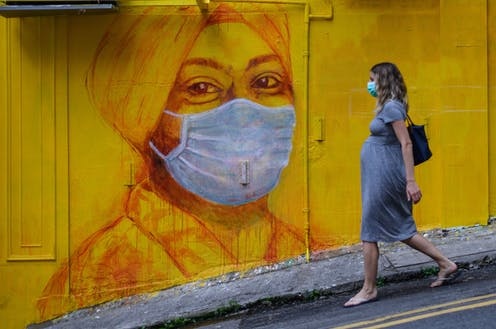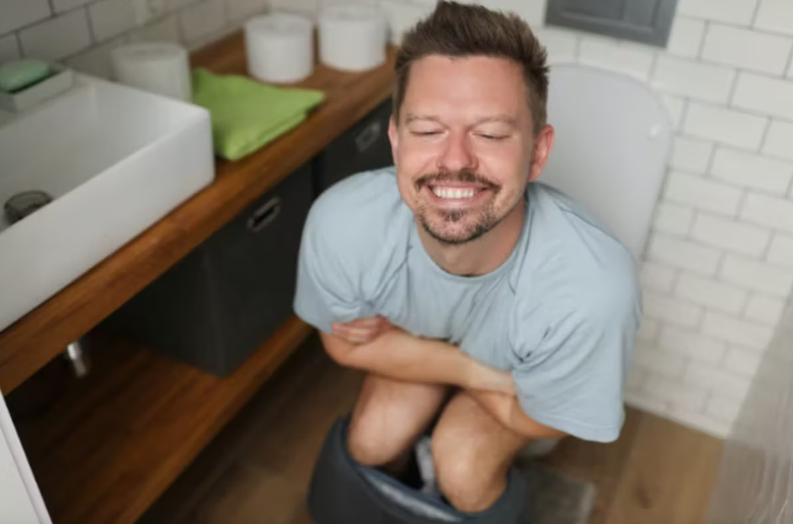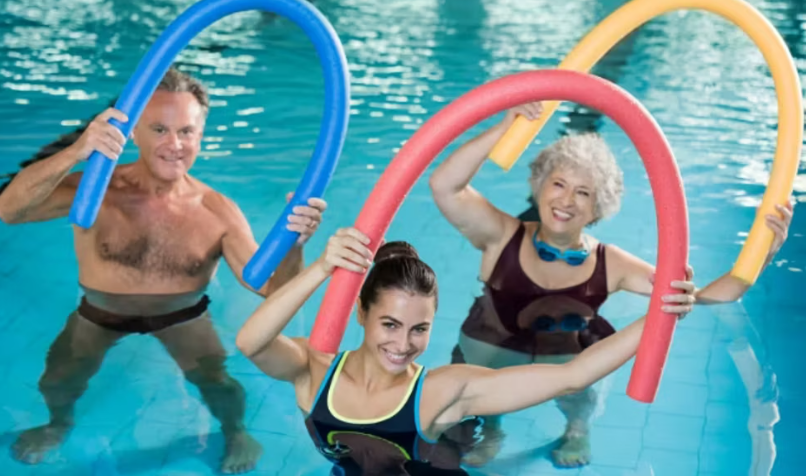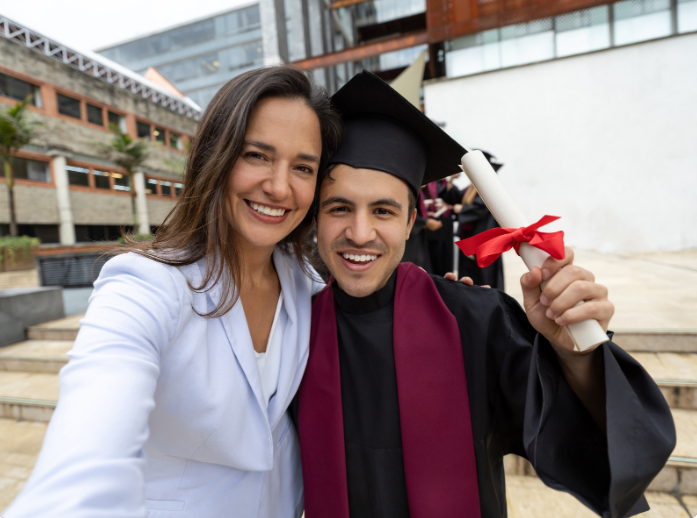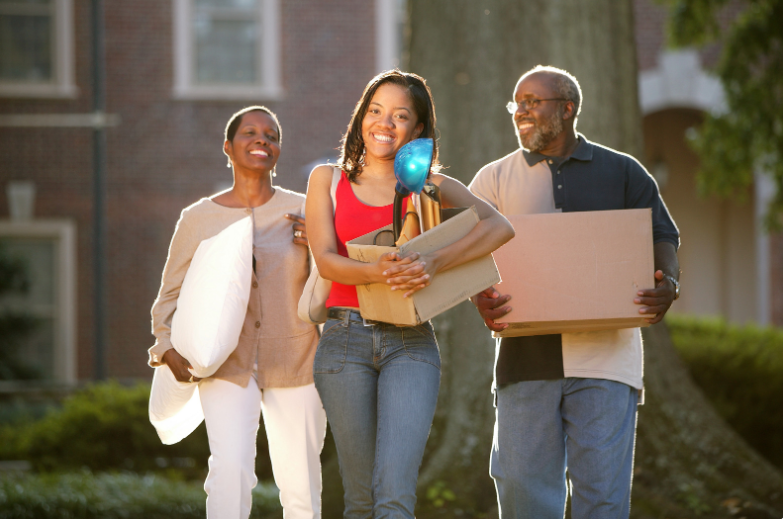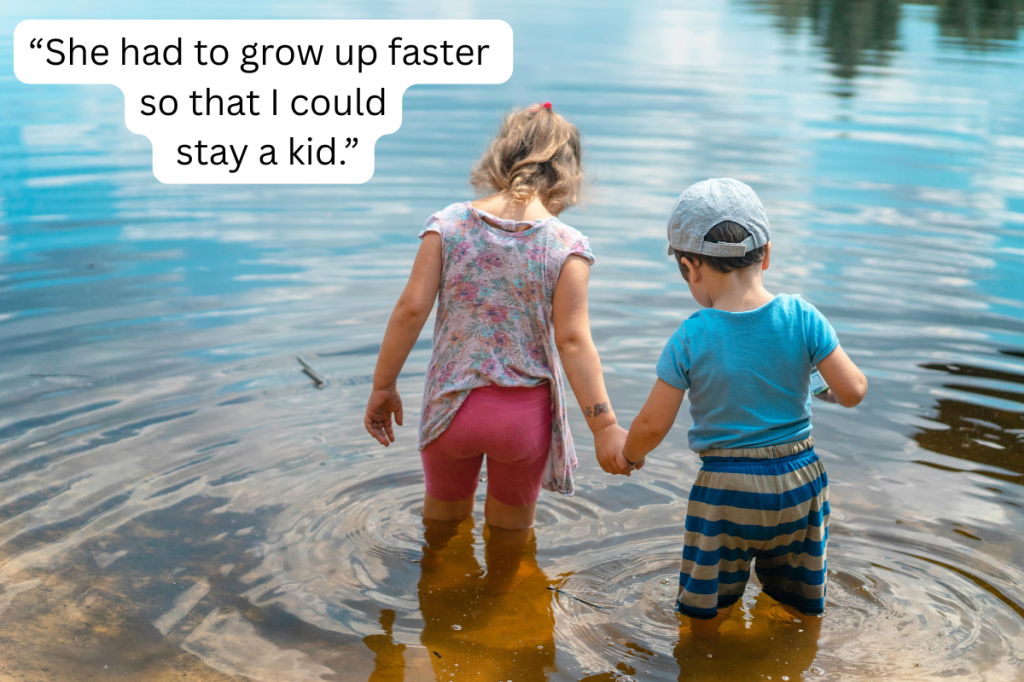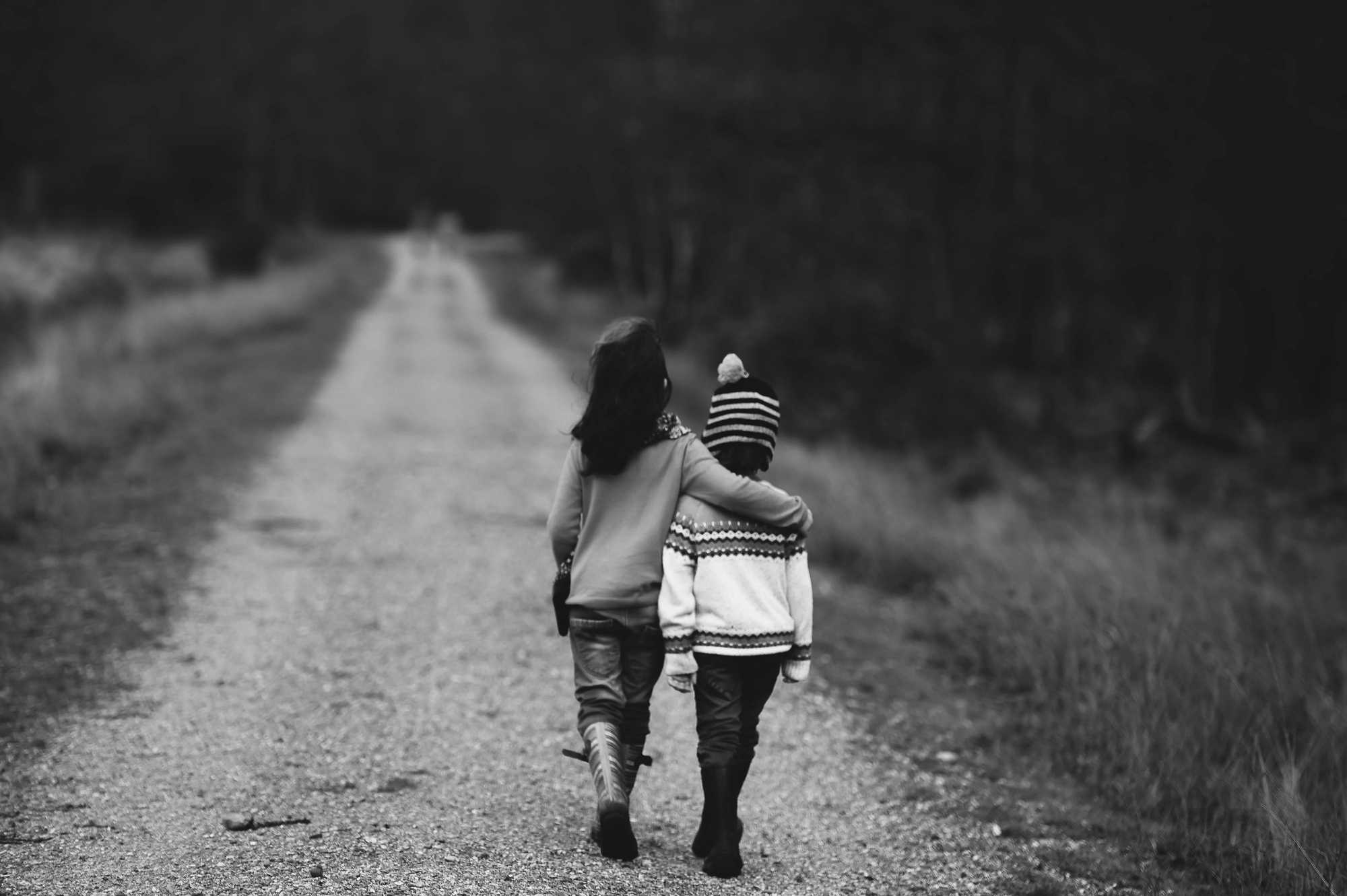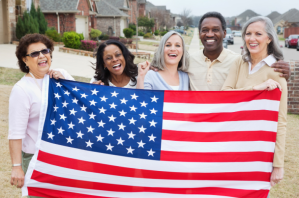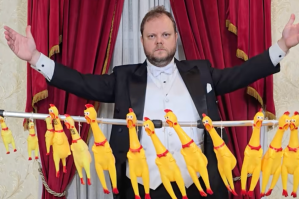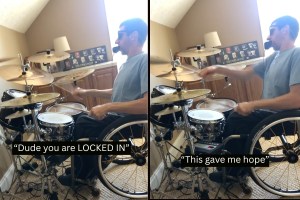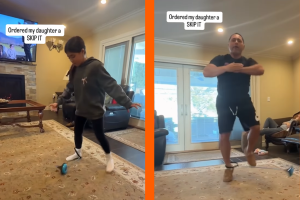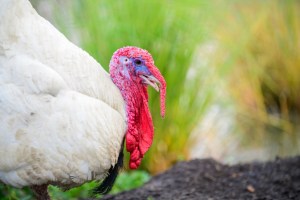“So, being pregnant and delivering in a pandemic … what’s that gonna look like?”
That question, sent to me by a colleague who is both a registered nurse and an expectant mother, stopped me in my tracks. As an OB-GYN physician, I naturally focus on the science of health care. Her email reminded me of the uncertainty expectant mothers now face as health risks and the health care system around them change amid this coronavirus pandemic.
While knowledge about the new coronavirus disease, COVID-19, is rapidly evolving and there are still many unknowns, medical groups and studies are starting to provide advice and answers to questions many expecting families are asking.
Do pregnant women face greater risk from COVID-19?
So far, the data on COVID-19 does not suggest pregnant women are at higher risk of getting the virus, according to the American College of Obstetricians and Gynecologists. However, as we have seen from the flu they are at greater risk of harm if they get respiratory infections. Pregnancy causes a variety of changes in the body and results in a slight immunocompromised state which can lead to infections causing more injury and damage.
Does having the coronavirus create a greater risk of miscarriage or preterm labor?
Studies have not yet been done to show if having COVID-19 during pregnancy increases the chance of miscarriage, but there is some evidence from other illnesses. During the SARS coronavirus epidemic in 2002-2003, women with the virus were found to have a slightly higher risk of miscarriage, but only those who were severely ill.
Having respiratory viral infections during pregnancy, such as the flu, has been associated with problems like low birth weight and preterm birth. Additionally, having a high fever early in pregnancy may increase the risk of certain birth defects, although the overall occurrence of those defects is still low.
Can a mother with COVID-19 pass the virus to her baby in the womb?
This data is evolving fast. Two papers published March 26 describe finding coronavirus antibodies in three newborns of mothers with COVID-19. That could suggest they had been exposed to the virus in the womb, though the virus itself was not detected in their umbilical cord blood and researchers have raised questions about the type of test used. Researchers in an earlier study found no evidence of COVID-19 in the amniotic fluid or cord blood of six other infants born to infected women. While the research papers include only a small number of cases, a lack of vertical transmission – from the mother to child in utero – would be consistent with what is seen with other common respiratory viral illnesses in pregnancy, such as influenza.
There have been a few reports of newborns as young as a few days old with infection. But in those cases, it is believed that the mother or a family member transmitted the infection to the infant through close contact after delivery. The virus can be transmitted through a cough or sneeze, which could spread virus-laden droplets on a newborn.
How are prenatal checkups changing?
Prenatal care may look different for a while to control the spread of COVID-19 among patients, caregivers and medical staff.
Typically, a pregnant woman has about 14 prenatal visits. That may be reduced by approximately half, with telemedicine playing a larger role. Telemedicine is already endorsed by the American College of Obstetricians and Gynecologists for patients in rural settings. Now, the pandemic is making virtual care solutions an indispensable tool. Pregnant women are able to do some at-home monitoring, such as for high blood pressure, diabetes and contractions, and telemedicine can even be used by pregnancy consultants, such as endocrinologists and genetic counselors.
The frequency of sonogram appointments may also change. The Society of Maternal Fetal Medicine says it is safe to reduce “routine” ultrasounds at this time without jeopardizing the health and safety of the pregnancy. Of course, some patients with specific conditions like twins or babies with suspected birth defects may require more traditional follow up.

What should I expect during delivery?
Hospitals are doing what they can to minimize person-to-person transmission, and that may mean delivery looks different, too. Some hospitals are screening all medical staff, including with temperature checks, at the start of shifts.
Visitors are also being restricted. Recently, a hospital in New York enforced a no visitor policy, including partners, for patients about to give birth, citing coronavirus risk. This is definitely not what laboring women envision for their delivery, but in times of widespread communicable disease, it is reality.
If I have COVID-19, will I need a cesarean section?
No. Having COVID-19 is not a reason for a cesarean. There’s no evidence that either method, vaginal birth or cesarean, is safer when it comes to COVID-19. Although data is still limited, other coronavirus infections have not been known to pass to the child from vaginal birth.
Both the American College of Obstetricians and Gynecologists and the Society of Maternal Fetal Medicine believe, in most cases, the timing of delivery should not be dictated by the mother’s COVID-19 diagnosis. Women infected early in pregnancy who recover should see no change to their delivery schedule. For women infected later in pregnancy, it is reasonable to attempt to postpone the delivery, as long as no other medical reason arises, until the mother receives a negative test result.
How long will I be in the hospital after I give birth, and what if I have COVID-19?
Expect a faster discharge from the hospital. To limit the risk of inadvertent exposure and infection, the ACOG says discharge may be considered after 12 to 24 hours, rather than the usual 24 to 48 hours for women with uncomplicated vaginal births, and after two days for women with cesarean births, depending on their health status.
For mothers with confirmed COVID-19, the Centers for Disease Control and Prevention advises that infants be isolated from them, which understandably is not ideal. That could mean drawing a curtain between the mother and newborn and keeping them at least six feet apart. The CDC suggests continuing that separation until 72 hours after the mother’s fever is gone. If no other healthy adult is present in the room to care for the newborn, a mother who has confirmed or suspected COVID-19 should put on a facemask and practice hand hygiene before each feeding or other close contact with her newborn.
Is home birth safer than a hospital right now?
If a woman chooses to have her baby in a hospital or birthing center, she will have a dedicated team of health care providers trained to protect her and her baby from COVID-19 and handle any unforeseen complications. There is some concern regarding person-to-person exposure with COVID-19 in a home birth setting due to fewer restrictions on visitors. Although the ACOG has not made a statement specifically on this risk, the United Kingdom’s Royal College of Obstetricians and Gynaecologists has a statement advising against home birth for women who have been exposed to COVID-19.
Can I breastfeed my baby if I have COVID-19?
In limited cases reported to date, no evidence of virus has been found in the breast milk of women infected with COVID-19; however, precautions are still recommended. Breastfeeding is encouraged and is a potentially important source of antibody protection for the infant. The CDC recommends that during temporary separation, women who intend to breastfeed should be encouraged to pump their breast milk to establish and maintain milk supply. The mother should wash her hands before touching any pump or bottle parts. If possible, it is also recommended to have someone who is healthy feed the infant.
Having a child is a momentous occasion that should be celebrated, including during a pandemic. Do your part to keep yourself healthy. Wash your hands, maintain social distance and keep in close contact with your health care providers throughout the pregnancy. It may not be what you envisioned, but you will have quite a story to tell your children.
Hector Chapa is Clinical Assistant Professor, Director of Interprofessional Education, College of Medicine, Texas A&M University.
This article originally appeared on The Conversation. You can read it here.
